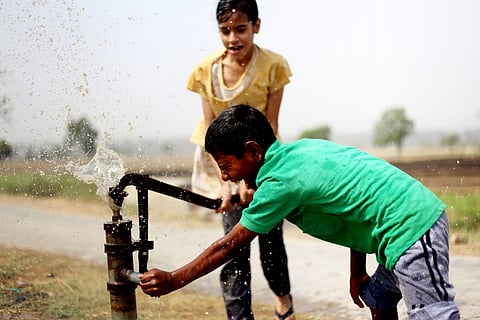

UN report found open defecation in low-income countries remained four times higher than the global average
Despite progress since 2015, billions still lacked safe water, sanitation and hygiene in 2024
Rural communities, women, ethnic minorities and people with disabilities faced the greatest disparities
To meet 2030 targets, low-income countries would need a sevenfold increase in access to safe water and an eighteenfold increase in sanitation
Open defecation in low-income countries remained four times higher than the global average, making them the only income group not on track to eliminate the practice by 2030, according to a new report launched by the World Health Organization (WHO) and the United Nations Children’s Fund (UNICEF) during World Water Week (August 24-28, 2025).
The report, Progress on Household Drinking Water and Sanitation 2000–2024: Special focus on inequalities, presented updated national, regional and global estimates on water, sanitation and hygiene (WASH) for the period 2000–2024. It focused particularly on inequalities in access to safe drinking water, sanitation and hygiene, which continue to impede the achievement of UN-mandated Sustainable Development Goal (SDG) 6.
SDG 6 of the 2030 Agenda sought to “ensure availability and sustainable management of water and sanitation for all.” It included targets for universal access to safe drinking water, sanitation and hygiene.
The report, published on August 25, 2025, showed that while progress had been made, major gaps persisted. People in low-income countries, fragile contexts, rural communities, minority ethnic and indigenous groups, and children faced the greatest disparities.
Subnational data showed sharp disparities between rural and urban regions, the richest and poorest households, and among ethnic groups. Women and girls also spent more time collecting water than men and boys, highlighting gendered burdens.
Emerging evidence revealed that access also varied between communities with and without roads, between minority and majority populations, and between people with and without functional disabilities.
Between 2015 and 2024, 1.2 billion people gained access to safely managed sanitation, raising global coverage from 48 per cent to 58 per cent. By 2024, three in five people had access to hygienic toilets with waste safely treated and disposed of.
While nearly all developed countries had achieved universal access, coverage in developing countries varied widely. Open defecation had been eliminated in Latin America and the Caribbean, as well as in Eastern and South-Eastern Asia, and nearly eliminated in Northern Africa and Western Asia. But in low-income countries, rates of open defecation remained four times higher than the global average.
Between 2015 and 2024, global coverage of safely managed drinking water increased from 68 per cent to 74 per cent. Rural access rose by 10 percentage points (from 50 per cent to 60 per cent), but urban coverage remained unchanged at 83 per cent. Although coverage was higher in urban areas across all regions, rural areas experienced faster gains.
However, significant inequalities persisted. In 2024, three in four people had access to safely managed drinking water, but people in the least developed countries were more than twice as likely to lack it.
To achieve universal access to basic WASH services (SDG 1.4), the report said lower-middle-income countries would need to double current rates of progress. Low-income countries would require a sevenfold increase in access to basic water, and an eighteenfold increase in basic sanitation and hygiene.
The WHO/UNICEF Joint Monitoring Programme (JMP) noted that the situation of small populations, such as ethnic minorities and indigenous groups, was often not reflected in national statistics, and alternative data collection mechanisms were needed to ensure they were not left behind.
Dr Ruediger Krech, Acting Director for Environment, Climate Change and Health at the WHO, said: ““Water, sanitation and hygiene are not privileges, they are basic human rights. We must accelerate action, especially for the most marginalized communities, if we are to keep our promise to reach the Sustainable Development Goals.”
The report also included expanded data on menstrual health in 70 countries, revealing widespread challenges that continued to affect women and girls across all income levels.